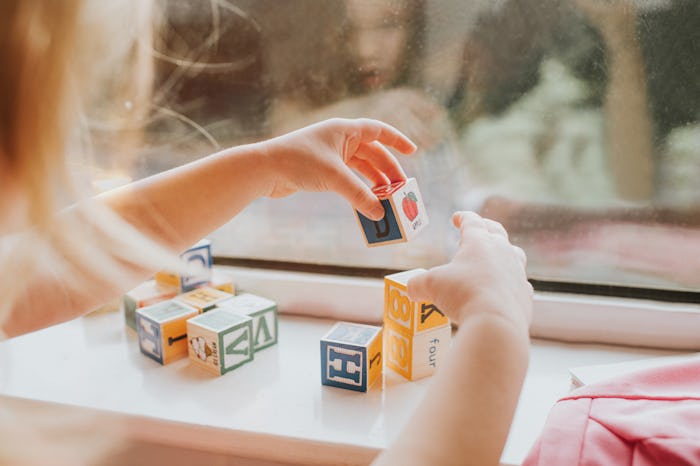News

A New Study Found Working In Child Care Didn't Increase Employees' COVID-19 Risk
A new study has found that working in child care amid the current public health pandemic may not carry elevated risks for contracting COVID-19. In surveying more than 57,000 U.S. child care providers between late May and early June, researchers at Yale University found that, at least early in the coronavirus pandemic, child care workers' risk of contracting COVID-19 did not increase as a direct result of their job.
In a study published Wednesday in Pediatrics, researchers surveyed 57,335 providers spread across 28 states, comparing COVID-19 outcomes among those that had remained open during the first three months of the pandemic with those that had shuttered. Their aim was to learn more about how reopening child care centers might impact community spread given the ongoing debate over reopening and children's ability to transmit COVID-19 at rates similar to adults.
Survey respondents were asked if their program had closed at or near the beginning of the pandemic, if it had reopened, and if it had been closed for any length of time due to a suspected or confirmed COVID-19 case. Those who reported providing in-person care amid the pandemic were then asked about group sizes and strategies or protocols their program took in April to mitigate the potential spread of disease.
Ultimately, researchers found no association between COVID-19 and working in a child care setting in the early months of the pandemic. "Within the context of considerable infection mitigation efforts in U.S. child care programs, exposure to child care during the early months of the U.S. pandemic was not associated with elevated risk for COVID-19 transmission to providers," researchers noted in their report.
According to researchers, 51.4% of respondents said the child care program they worked at closed toward the beginning of the pandemic and had not reopened. Of the 48.6% of respondents who said the child care programs they were employed by had either never closed or reopened, 8.6% reported an additional closure due to a confirmed or suspected COVID-19 case.
Yale's study is the first to examine COVID-19 transmission within child care centers and it's important to note that providers reported implementing a number of mitigation efforts such as symptom screening, social distancing, cohorting, smaller than normal group sizes, increased hand washing for both staff and children, and more frequent disinfecting of fixtures and surfaces. Additionally, 35.2% of respondents who continued to work during the early months of the pandemic reported that staff at their child care program wore face masks daily while 11.8% reported children over the age of 2 also wore masks.
"Although it is unclear whether any of these mitigational efforts significantly reduced transmission, there is no way to know whether these findings would hold in the absence of these infection mitigation efforts," researchers noted in their report. "Likewise, these results should not be applied to K-12 schools or universities, where students and contexts vary significantly from child care."
Researchers were also careful to warn that while working in child care may not elevate an individual's risk of contracting COVID-19, high rates of infection in the local community may impact the likelihood of exposure in a child care setting. "Although this study provides evidence that child care may pose negligible threat to community transmission, communities may pose a considerable threat to child care when background transmission rates are high," researchers wrote.
Finally, researchers also noted that they did not study transmission risk for children in child care settings, meaning it remains unclear how at risk children may be when placed in a child care program.
If you think you’re showing symptoms of coronavirus, which include fever, shortness of breath, and cough, call your doctor before going to get tested. If you’re anxious about the virus’s spread in your community, visit the CDC for up-to-date information and resources, or seek out mental health support. You can find all of Romper’s parents + coronavirus coverage here.